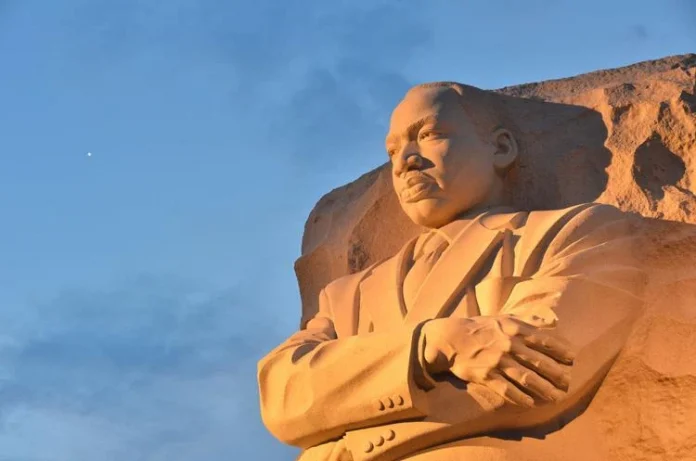
Nearly 60 years ago, Martin Luther King, Jr. delivered his “I Have A Dream” speech at the Lincoln Memorial in Washington, D.C.
King’s powerful plea for equal rights has resonated with Americans ever since, in no small part because his message was wrapped in an enlightened patriotism. He understood that the best way to fight bigotry was by returning to the vision of universal human dignity the American Founders articulated in our nation’s founding documents.
In 1963, African Americans faced intense oppression. Segregation laws and widespread racial prejudice denied them equal opportunity. America clearly wasn’t living up to the Founders’ ideal of human equality, so it’s easy to understand why many Black Americans felt alienated from their country and wanted revolutionary change.
King, however, did not repudiate his American heritage. If anything, he clung more closely to it.
At the Lincoln Memorial, he said:
When the architects of our republic wrote the magnificent words of the Constitution and the Declaration of Independence, they were signing a promissory note to which every American was to fall heir. This note was a promise that all men – yes, Black men as well as white men – would be guaranteed the unalienable rights of life, liberty and the pursuit of happiness (emphasis added).
In King’s mind, the solution to the injustices of American life could be discovered right in the very documents that birthed our country. King wanted to extend the same benefits of citizenship to African Americans who had been excluded from them for so long. He “refuse[d]to believe that the bank of justice is bankrupt.”
King fought so that all Americans would be treated fairly and given equal opportunities for success. His faith was that we could fight racial injustice in our role as patriotic citizens. Rather than the extremes of revolutionary violence or defeatist retreat, he argued that “We must forever conduct our struggle on the high plane of dignity and discipline.”
King believed that by respecting one another as equals in citizenship, both white and Black Americans could work together to fulfill the promises of the founding.
There is a lot that divides Americans today. But there is so much more that unites us. By laying claim to our nation’s founding principles, King showed Americans today how we can reinvigorate citizenship by living up to the promises at the heart of the American Founding.
Hans Zeiger is the president of the Jack Miller Center, a nationwide network of civics teachers, historians, and scholars of American political thought who are dedicated to the teaching of the American political tradition.
Republished with the permission of The Center Square.













